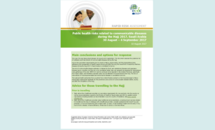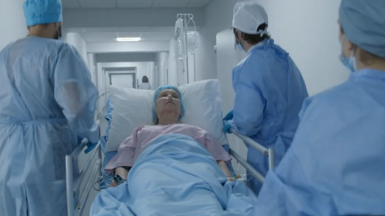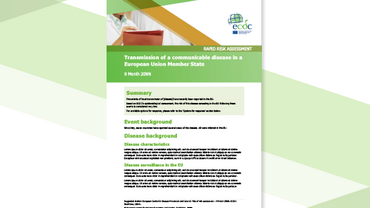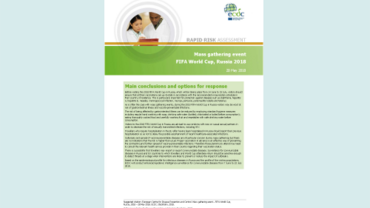Rapid Risk Assessment: Public health risks related to communicable diseases during the Hajj 2017, Saudi Arabia, 30 August – 4 September 2017
This year, the Hajj takes place between 30 August and 4 September. This document assesses the potential risk of outbreaks and transmission of communicable diseases during the Hajj.
Executive Summary
Due to the vaccination requirements prior to travel to Mecca, Saudi Arabia, and the preparedness plans addressing the management of health hazards during and after the Hajj, the overall risk of acquiring infectious diseases during the Hajj 2017 in Saudi Arabia is considered to be low.
The risk of communicable disease outbreaks is highest for food- and waterborne diseases and respiratory illnesses due to crowding, but the risk is not considered higher than can generally be expected for international mass gatherings of this size. MERS-CoV activity continues to be reported in the Arabian Peninsula, specifically from Saudi Arabia, and therefore imported cases may be detected in Europe following the Hajj. The risk of transmission of vaccine-preventable and vector-borne diseases is considered to be low.
The national health authorities from countries from where Muslims embark on the Hajj pilgrimage to Mecca should apply appropriate strategies for the prevention and control of communicable diseases before, during and after the completion of the Hajj.
Download







